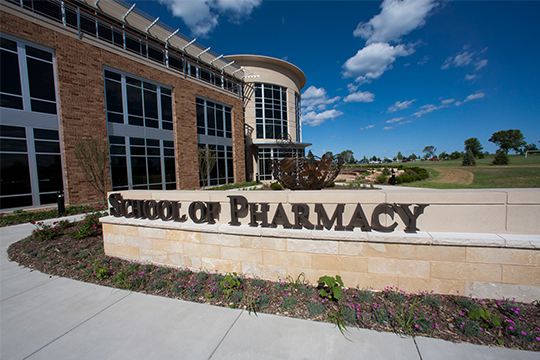 School of Pharmacy
School of Pharmacy The 2015 and 2016 graduating classes of Concordia University’s School of Pharmacy surpassed school goals and national averages for success in the National Resident Matching Program.
The program, commonly known as The Match, is a private, non-profit organization that provides an unbiased mechanism for matching applicants’ preferences with those of residency program directors across the country.
Ahead of Concordia’s May 14 commencement date, 21 members, or nearly 29 percent, of this year’s graduating class have secured post-graduate year one residency positions. This percentage exceeds the 2008-2011 national averages—the most recently reported figures for pharmacy schools across the country—by 14.6 percent.
In addition, seven members of the 2015 graduating class were successful in obtaining post-graduate year two residency positions, and all applicants attempting The Match for a post-graduate year two experience were successful.
“Our students’ success is a product of their great abilities, our rigorous curriculum, the dedication of our faculty and staff and the great opportunities that exist for them, especially in the state of Wisconsin,” said Dr. Dean Arneson, dean of the School of Pharmacy. “The competitive nature of obtaining a residency makes this great feedback for our students and program.”
Pharmacy residencies are educational experiences for licensed pharmacists that focus on the resident providing patient care and furthering their project, leadership and teaching skills under the preceptorship of experienced pharmacists. Residencies take place in hospitals, ambulatory care settings, community pharmacies and managed care organizations and are fast becoming a requirement for obtaining a position in many settings where pharmacists are involved in direct patient care.
Residencies typically begin in late June to early July and last one year.
Most of Concordia’s graduates—93 percent—obtained residencies in Wisconsin, with the remainder matching to residency programs in Minnesota.
“We are very proud of our students’ efforts and accomplishments,” Arneson said. “We look forward to them serving their patients further through residency education and beyond.”
— This story is written by Kali Thiel. Kali was Director of University Communications until April, 2025.
If this story has inspired you, why not explore how you can help further Concordia's mission through giving.